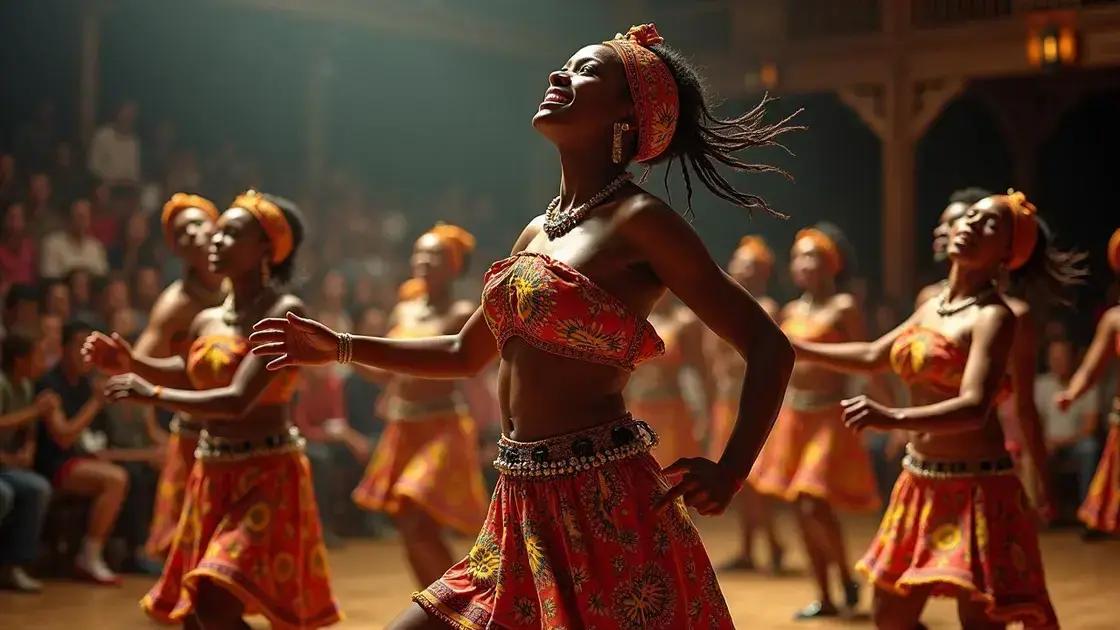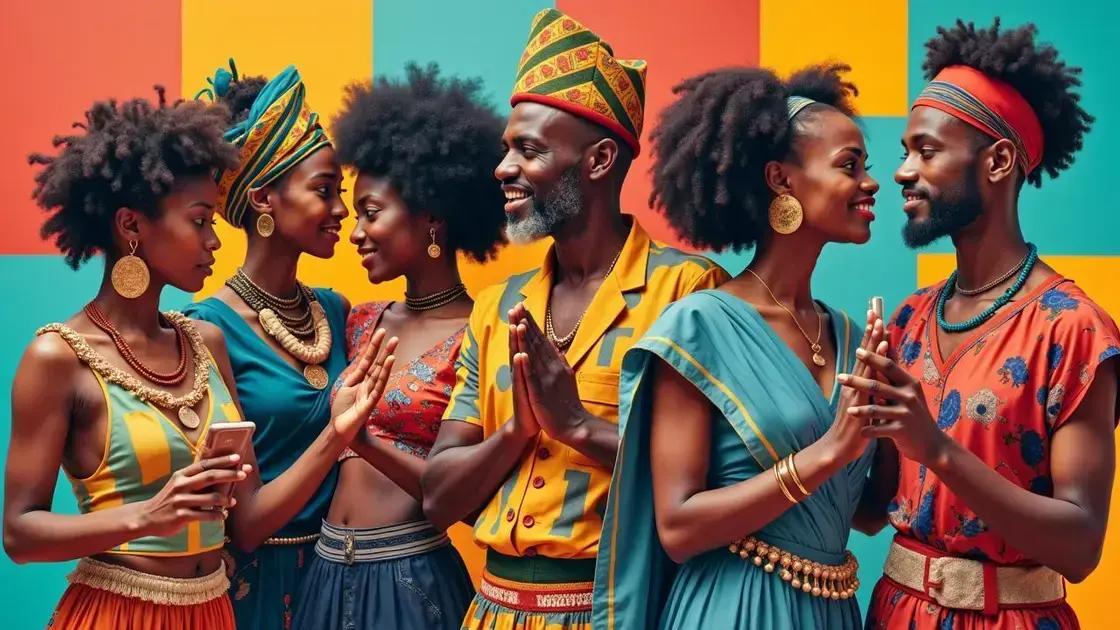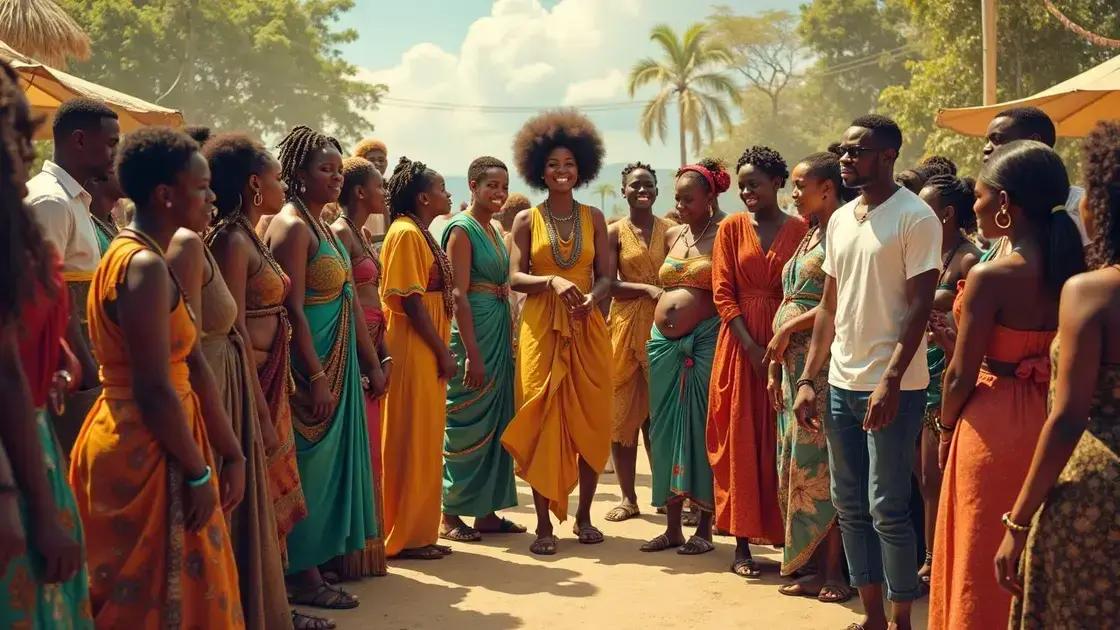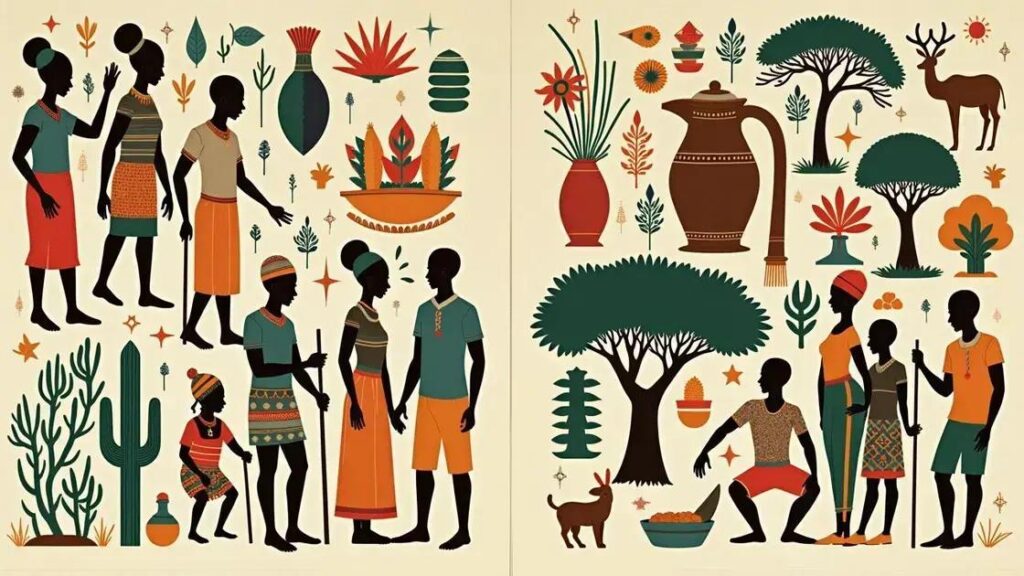The African Trick phenomenon encompasses unique cultural practices that preserve heritage, foster community cohesion, and adapt to modern society, significantly impacting youth participation and social representation.
The African Trick has become a focal point in recent studies, illustrating the depth and richness of cultural practices across the continent. This intriguing topic not only sheds light on unique traditions but also emphasizes the broader implications these practices have on modern society. In this article, we will delve into what the African Trick is, explore recent research findings that highlight its significance, and discuss its cultural implications.
Understanding the African Trick Phenomenon

Understanding the African Trick Phenomenon involves exploring the unique cultural practices and traditions found throughout the African continent. These practices, often referred to as ‘tricks’, can encompass a variety of rituals, performances, and social behaviors that reflect the rich tapestry of African heritage.
What Constitutes an African Trick?
An African Trick may include anything from storytelling traditions to intricate dance styles that convey historical narratives. These elements are not merely entertainment; they serve as vital means of preserving cultural identity and fostering community bonds.
The Role of Oral Traditions
Oral traditions play a crucial role in the African Trick phenomenon. Elders pass down tales that educate younger generations about their history, values, and social norms. This transmission of knowledge ensures that cultural legacies continue to thrive in modern society.
Examples of African Tricks
Some common examples include unique forms of dance such as the Zulu war dance or the griot tradition of West Africa, where storytellers use music and poetry to engage audiences. These dynamic performances often address social issues, celebrating triumphs while reflecting on challenges faced by communities.
Connection to Community and Identity
The African Trick is deeply intertwined with community and identity. These cultural expressions foster unity among group members, reinforcing shared values and history. In many cases, participation in these traditions strengthens individuals’ sense of belonging and cultural pride.
Through this understanding, we can appreciate how the African Trick phenomenon captures the essence of diverse African cultures, highlighting their resilience and adaptability in the face of change.
Recent Research Findings

Recent research on the African Trick phenomenon has provided important insights into how these cultural practices adapt to modern society. Studies have shown that these tricks not only preserve cultural identity but also influence youth engagement and community cohesion.
Key Findings in Cultural Adaptation
One significant finding indicates that younger generations are increasingly participating in traditional practices, often blending them with contemporary forms. This fusion attracts more participants and keeps traditions relevant.
Impact of Social Media
Another research aspect highlights the role of social media in promoting and sharing African Tricks. Platforms like Instagram and TikTok allow young people to showcase their cultural heritage, reaching wider audiences and sparking interest in traditional practices.
Ethnographic Studies
Ethnographic studies have also emphasized the importance of these tricks in daily life. Researchers found that festivals and communal events using African Tricks strengthen bonds and promote cultural pride among community members.
Moreover, these events have been shown to enhance social capital by creating networks of support and collaboration within communities. This fosters resilience and helps maintain the essence of African culture despite globalization.
Cultural Significance and Implications

The cultural significance of the African Trick phenomenon is profound and multifaceted. These practices foster a sense of identity and community among individuals and groups. Through participation in various tricks, people can connect with their roots and maintain a link to their ancestors.
Preserving Heritage
One of the primary implications of these cultural practices is the preservation of African heritage. They allow communities to pass down stories, music, and art forms that are integral to their history. As a result, younger generations are better equipped to understand and appreciate their cultural background.
Social Cohesion
Another essential aspect is the role of African Tricks in enhancing social cohesion. Participating in cultural events helps build relationships among community members. This unity is particularly vital in diverse societies where various ethnicities may coexist. By embracing common cultural activities, people foster a sense of belonging.
Impact on Modern Society
Moreover, the relevance of these practices extends into modern society. Engaging in traditional tricks can stimulate discussions about social issues and cultural representation. These conversations often empower communities to advocate for their rights and preserve their cultural identity in the face of globalization.
In summary, the African Trick phenomenon is not just a collection of cultural performances; it is a vital part of community identity, social connection, and cultural preservation.
Understanding the Importance of African Tricks
The African Trick phenomenon serves as a vital link to cultural heritage, maintaining the identities of communities across the continent.
Recent studies highlight how these practices adapt to modern contexts, fostering social cohesion and encouraging active participation among younger generations.
Moreover, the implications of these cultural expressions reflect their relevance in contemporary society, promoting discussions about identity, representation, and community rights.
In conclusion, recognizing and supporting the African Trick phenomenon is essential for preserving cultural diversity and ensuring that future generations continue to celebrate and engage with their rich heritage.
FAQ – Frequently Asked Questions about the African Trick Phenomenon
What is the African Trick phenomenon?
The African Trick phenomenon comprises unique cultural practices and traditions that preserve the identity and heritage of various communities across Africa.
How does the African Trick influence youth participation?
Recent studies show that young people are increasingly engaging in traditional practices, often blending them with modern elements to keep traditions relevant and appealing.
What role does social media play in promoting African Tricks?
Social media platforms allow individuals to share and showcase traditional practices, promoting awareness and interest among wider audiences, particularly younger generations.
Why is cultural preservation important in the African Trick context?
Cultural preservation helps maintain the roots and histories of communities, ensuring that future generations appreciate and connect with their rich cultural heritage.
How do African Tricks foster community cohesion?
Participating in cultural events that feature African Tricks strengthens relationships among community members, creating a sense of belonging and shared identity.
What implications do African Tricks have in modern society?
African Tricks stimulate discussions on social issues, cultural representation, and community rights, empowering individuals to advocate for their identity and heritage in a globalized world.













